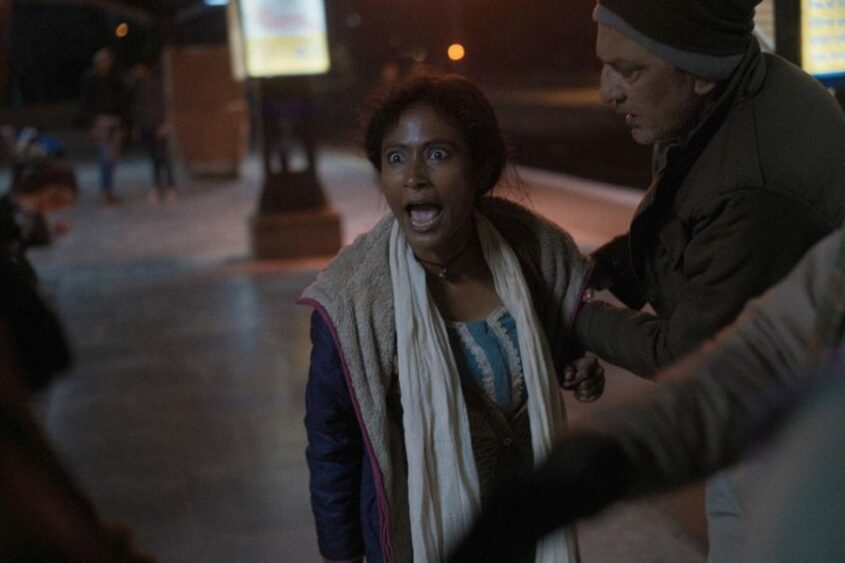Thrillers have long been OTT catnip—gun-toting, knife-wielding heroes, anti-heroes wading through murky conspiracies. But lets, for a minute, go all the way back. From light, frothy hybrid thrillers of the early decades of Hindi cinema—equal parts music and mystery—to morally complex tales today, Bollywood thrillers have come a long way. The song-heavy, glamorous, plot-twisty whodunnits of the 50s and 60s gave way to the populist, political, conspiratorial thrillers of the ’70s and ’80s. By the ’90s, the genre lost shape, devolving into pulpy, gimmicky star vehicles.
The 2000s brought a revival of sorts. We were served thrillers that trusted our intelligence, leaned on craft, and cut the excess. Streaming gave the genre another boost. Stories in the genre today are more grounded and morally ambiguous.
But there’s also a flip side. Thrillers today are trying to take on too much—folding in social critique, political commentary, media satire, personal drama, and what have you. And when thrillers wander across too many lanes, they risk losing the one thing they can’t do without: tension.
For a survival thriller, the stakes are even higher. Watching vulnerable, morally disengaged characters—who know they’re up against something that can’t be negotiated with, only destroyed—can be harrowing but also vicariously releasing. But the sub-genre itself can be tricky. The characters are few, and the setting is limited. There’s not a lot to work with, rendering the narrative linear, one-note.
With Stolen, we get a survival thriller juggling so many ideas, you worry the film might collapse under its own ambition. Class conflict, corruption, bureaucratic rot, social media paranoia, misinformation. Surprisingly and thankfully, despite its thematic sprawl, the film manages to bring it all together into a taut, coherent whole.
We’re dropped straight into the chaos: a faintly lit railway station in the dead of night. A child of a marginalized woman vanishes, pulling a young, urban sibling duo—there by chance—into the spiraling aftermath.
And quickly, the mystery thriller morphs into something larger. A class conflict of privileged vs poor. There are so many layers, visual and thematic, that come remarkably undone as the film progresses.
Cinematographer Isshaan Ghosh’s camera maintains a roving, intimate gaze keeping us close to the action and the characters. We feel complicit, yet never fully informed.
For a debut feature, director Karan Tejpal showcases early mastery of space and time, two essentials in a thriller. A good one is akin to a great piece of music. It knows how to modulate tension—building, releasing, misleading—without being one unbroken high pitch of suspense. As Hitchcock put it wonderfully to Truffaut:
If you want to ‘play the audience like a violin’, you can’t be battering away at the strings all the time.
A masterclass in tension building, Stolen hits all the right notes.
It uses spatial limits to crank up the tension equally well. The film cleverly projects the anxiety of its characters externally into the physical space around them. Locations almost serve as plot devices. The vehicular confines, the rough terrains and narrow alleyways of the village are all used to stifling effect.
Tejpal tells the story with remarkable restraint without tamping down the drama.
Stolen also handles the class critique with nuance. It isn’t tokenistic or lazy and resists easy catharsis that has come to define films in this space. The commentary sits in the tone and subtext — not in dialogues or heavy handed exposition; it’s more intuitive than spelled out.
RELATED: How To Write Great Dialogue
Operating adjacent to ‘eat the rich’ theme (almost verging on a recognizable genre of its own), the film never caricatures its privileged characters or presents them as outright villains or terrible people (entitled, yes!) that most films in this genre fall prey to. They’re flawed, complicit, but also human.
Abhishek Banerjee (Gautam) continues to astound with a range that spans the grimly tense to the sharply comic. I watched Mia Maelzer (Jhumpa) balance the quiet and the ferocious with wide-eyed wonder. Shubham Vardhan’s (Raman) clipped, restrained delivery brilliantly conveyed his constant tussle between guilt and empathy.
Survival thrillers are a rare genre (NH10, Trapped) in Bollywood and when done well, they remind us that a good one needs craft and control, not scale and excess.
Where to Watch: Prime Video

